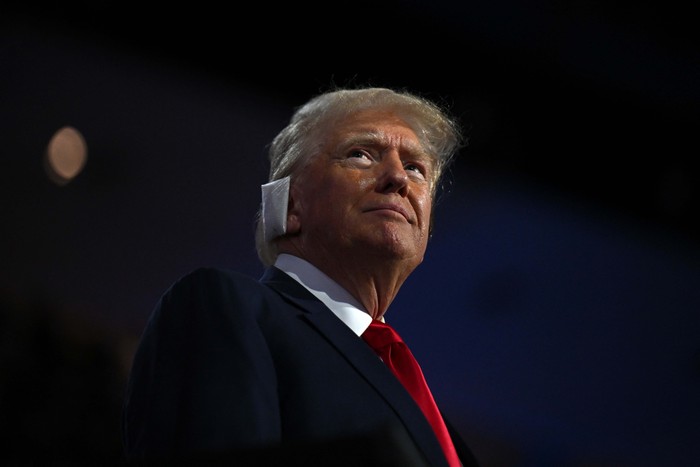
Photo: REUTERS/Callaghan O'Hare
Former President of the United States, Donald Trump, has once again sparked controversy with his statements regarding Taiwan and its relationship with the United States. In an interview with Bloomberg, Trump stated that Taiwan should pay the US for defense costs, raising both support and opposition among the public.
Controversy over Trump's Statements
During the interview, Trump expressed his views on Taiwan by stating, "Taiwan doesn't give us anything." This statement has sparked various reactions, especially since Taiwan has become one of the largest chip producers in the world and plays a crucial role in the global semiconductor industry.
In response to questions about defending Taiwan against China, Trump linked this to Taiwan's contribution to the semiconductor industry. He emphasized that Taiwan should pay the US, citing that the country takes most of America's chip business.
Impact of Trump's Statements
Trump's controversial statements have not only sparked debates but also had a direct impact on the stock market. Shares of Taiwan's largest chip company, Taiwan Semiconductor Manufacturing Co (TSMC), fell by 2.4% after his statement.
TSMC is one of the leading and largest chip manufacturers in the world, playing a key role in the global semiconductor industry. The world's dependency on chip production in Taiwan has raised concerns about the instability of the industry in the face of potential conflicts between Taiwan and China.
US Efforts to Reduce Dependency
Under the administration of Joe Biden, the United States is working to reduce its dependency on chip production abroad. One of the steps being taken is to encourage major companies like TSMC and Samsung to open production facilities in the US.
Given Taiwan's dominance in the semiconductor industry, these steps are expected to reduce global dependency on chip production in Taiwan and secure vital chip supplies for various industrial sectors worldwide.
With Trump's controversial statement and the market's response, the relationships between Taiwan, the United States, and China in the context of the semiconductor industry are becoming more complex and require careful strategies to maintain global stability.



